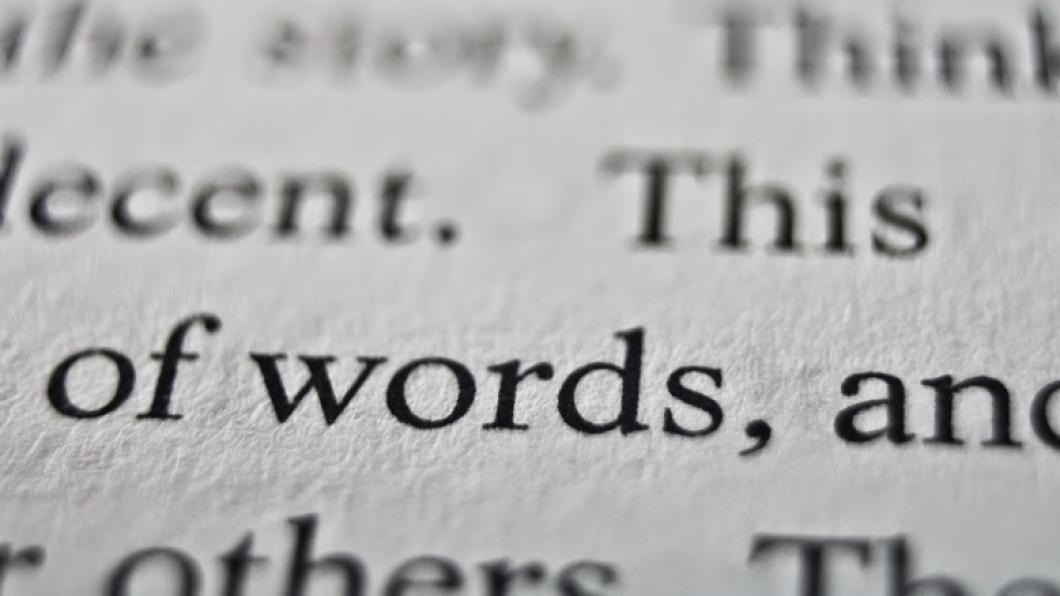
When language fails
By Louise Kinross
I was trying to explain to my therapist how having a child who didn't speak had let me off the hook in terms of answering tough questions about his disability.
I was expressing concern about my son's future as an adult, but feeling stuck in terms of how to discuss it with him.
While I had talked a lot about how his disability affected him when he was little, I hadn't in recent years spelled out clearly that he wouldn't be able to drive, or live alone, or do some of the things he'd identified as dreams in his Life Plan day a couple of years ago.
When he was little we talked regularly about his Langer-Giedion Syndrome, but we hadn't done so recently.
In fact, when I thought about it, I didn't clearly identify him as having disabilities in everyday conversation. I hadn't talked openly about disability and asked him how it made him feel.
I had taken advantage of the fact that he couldn't pester me with questions like a speaking child. A part of me felt that he saw himself as different, but not disabled, and I didn't want to hurt his self-esteem. I knew I was supposed to be nurturing a self-advocate, but our communication barrier, and the sadness in my heart, got in the way.
When he was little, we talked about disability in terms of how it affected him functionally: he didn't grow like other kids/"good things come in small packages;" he needed hearing aids to hear; he knew what he wanted to say, but his muscles wouldn't listen to him; he needed physio to help him learn how to walk; other people speak, but he would talk with his hands or a machine; he grew bumpy pieces of bone on different parts of his body but they weren't usually a problem. And if they were, they could be removed.
I'd always had an explanation for his random genetic condition ready, but I'd never used it (in fact, when I think about it, I've only ever shared it with one of my daughters, when she asked for a more sophisticated answer).
The plan was to explain that everyone has genes that are like letters of the alphabet. The letters are put together in words and sentences that give your body instructions on how to take care of itself. But in my son's case, he was missing two genes, or letters. He had a deletion on the long arm of Chromosome 8. This meant that some of the instructions to the body got jumbled. There wasn't any reason that he had this condition and the rest of us didn't. It was a random error (I'd have to work on the language there). Just something that happened at conception. It wasn't fair. It wasn't just.
I was trotting out this explanation dispassionately with my therapist when I surprised myself by breaking down. "I don't want to tell him that he's missing something," I said, sobbing at the word 'missing.' "I don't want to tell him that everyone else has these letters and he doesn't."
What followed was a discussion about how it was important that I talk more openly about his disabilities and how they would shape his life options.
"He knows he has a disability," she said, "but it can provide a great deal of relief when someone's condition is explained in detail to them."
And then, she said, I would be able to list all of the amazing qualities that make up my son, the things that seem bigger to us than what is missing.
So I told my son last night that before he went on the iPad we were having a talk. I got out a piece of paper and wrote Langer-Giedion Syndrome on it.
Do you know what that is, I asked?
Yes, he nodded.
It's the genetic condition you have.
I jotted down a few of the symptoms: hard of hearing, bumpy bones, you don't speak, your muscles are weak. I ran my hand over a large bony growth that had appeared on his leg in the last year. Your bones are bumpy, but usually they don't cause a problem, I said. And if they do they can be surgically removed.
He gasped and pretended to hyperventilate, his way of telling me that he hates hospitals and operations.
We went through the other symptoms.
Your body has lots of genes, I said. Genes are like letters, the ABCs. When you put them together they spell words that tell your body how to take care of itself.
Two of your genes aren't working properly (in the moment I managed to avoid the 'missing' word). So sometimes your body doesn't get the right messages and it causes problems.
How does it make you feel that you have disabilities?
He looked at me but didn't respond. My son's attention for this topic had reached its limit.
It must be very frustrating, I said. And it probably makes you feel mad sometimes. And sad.
To my great surprise, my son started laughing. He'd just been watching a Jackie Chan Adventures cartoon with his brother, and I can only imagine that his mind had moved on from our serious and dry genetic discussion to the lighter fare of the silly cartoon caper.
I began to write out the list of my son's amazing qualities: Funny. Kind. Caring. Curious. Sensitive. A good friend. Smart. Gentle. Courageous.
I read them out loud.
So even though you have Langer-Giedion Syndrome, you have all of these other things, I said.
It's a small start, I told myself. But an important one. Next on the agenda: a talk about the future.